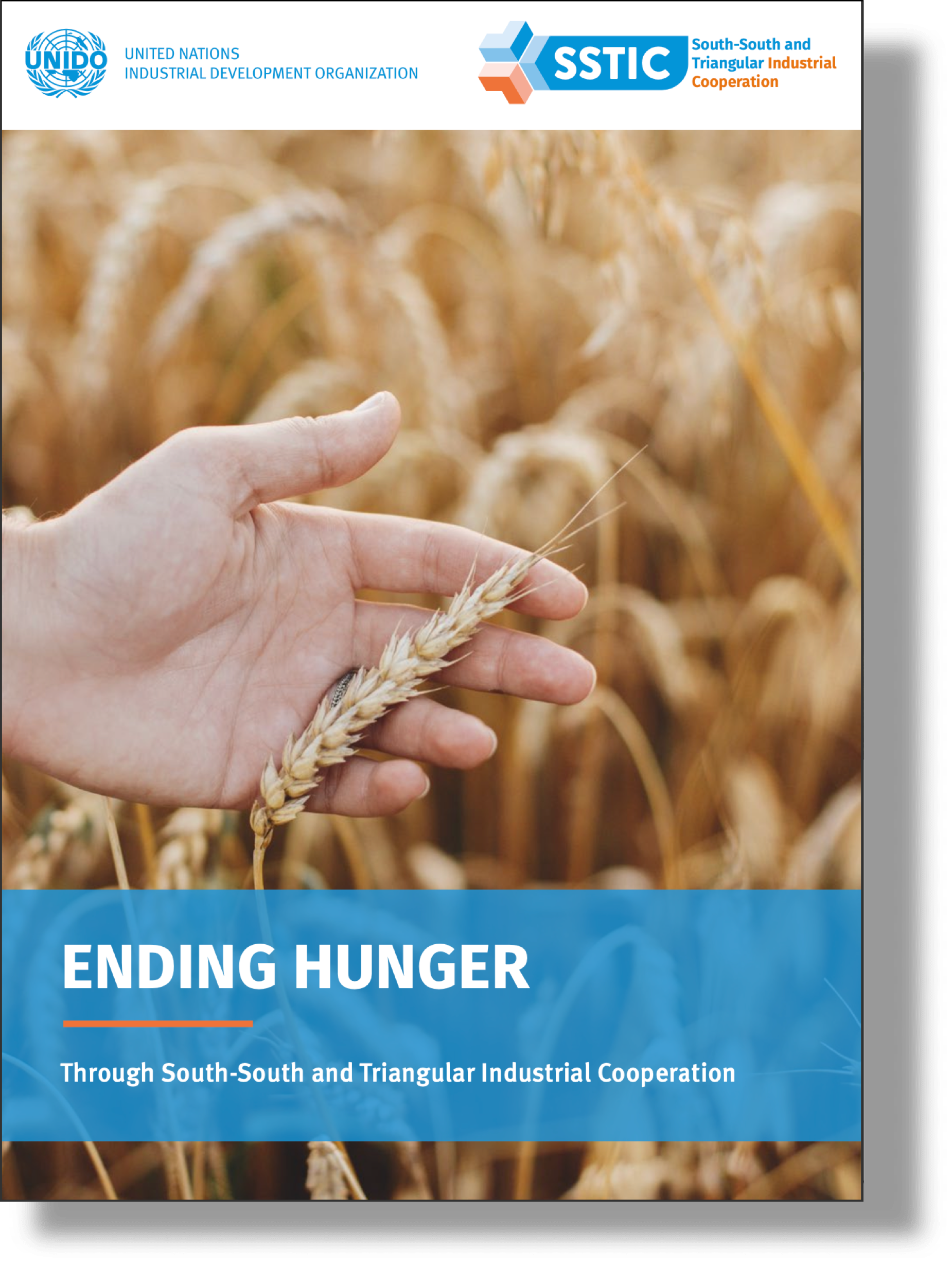As the global community grapples with the persistent challenge of hunger, South-South and Triangular Industrial Cooperation (SSTIC) presents a dynamic platform for innovative solutions and coordinated action. By leveraging industrial cooperation and shared developmental experiences, SSTIC can significantly contribute to the global goal of ending hunger.
Technically, SSTIC promotes the transfer, adaptation, and assimilation of advanced agricultural and food processing technologies. From precision farming techniques that optimize crop yields, to modern storage and preservation technologies that reduce post-harvest losses, SSTIC encourages the sharing and adoption of such technologies across nations. In addition, SSTIC provides a platform for countries to exchange best practices in agricultural productivity, food security policies, and strategies for rural development.
This publication by the United Nations Industrial Development Organization (UNIDO) delves into four crucial domains: Agribusiness Development, Food Security and Food Safety, Agro-Industrial Parks, and Bioeconomy.
The Agribusiness Development section illustrates how SSTIC promotes the transfer and adaptation of advanced agricultural and food processing technologies, along with sharing best practices in agricultural productivity. This section expounds on SSTIC’s role in capacity-building initiatives, enhancing stakeholders’ technical skills across the food production and distribution chain.
Food Security and Food Safety section delves into SSTIC’s policy-shaping role, providing advice and facilitating environments conducive to food security, which includes boosting agricultural productivity and enhancing market access for farmers.
The third section, Agro-Industrial Parks, highlights SSTIC’s efforts in fostering agricultural diversification and rural entrepreneurship, essential for enhancing agricultural sector resilience and improving nutritional diversity.
Finally, the Bioeconomy section showcases UNIDO’s efforts to support value addition through SSTIC in agricultural products, creating new income opportunities and strengthening local food systems. Collectively, these sections aim to offer a detailed understanding of UNIDO’s multi-pronged approach to combating global hunger through SSTIC.

